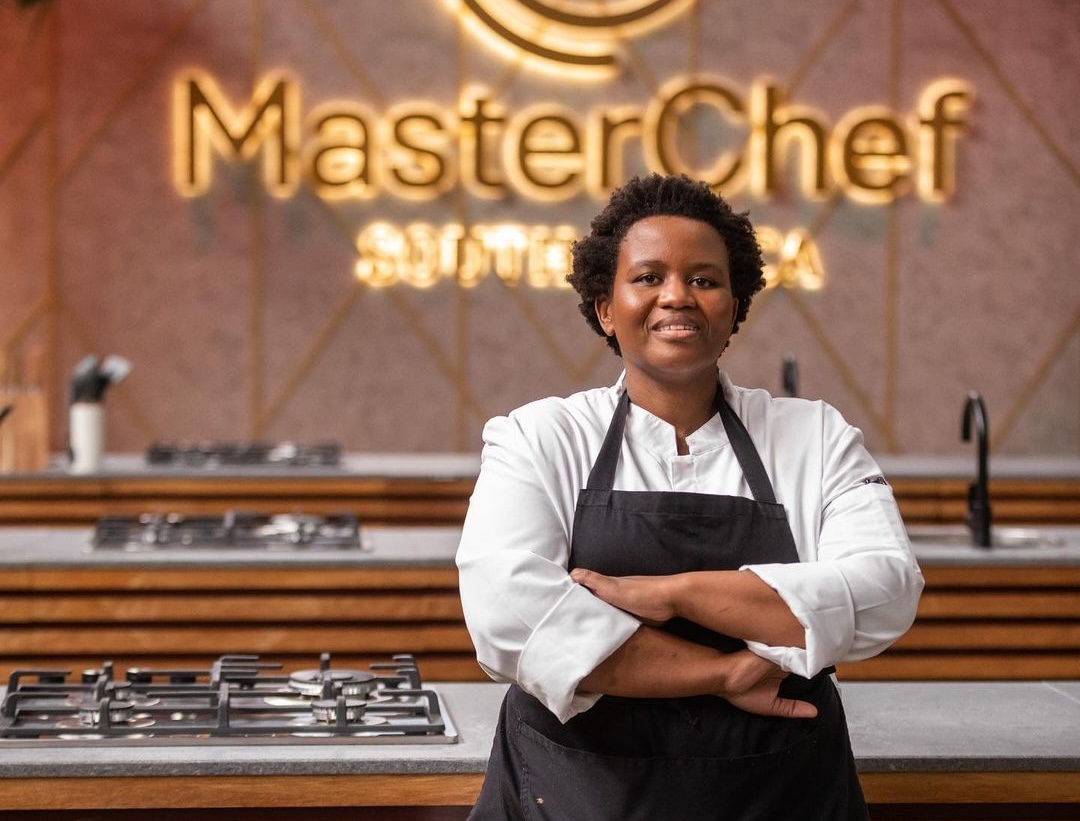Mmabatho Molefe is a name that has risen to prominence in South Africa’s culinary scene and beyond, thanks to her creative takes on traditional Zulu cuisine and her unwavering commitment to social change. Here are 20 things you should know about this trailblazing chef and restaurateur:
1. Early Roots in KwaZulu-Natal
Mmabatho Molefe grew up in KwaZulu-Natal, where her love for food was sparked by childhood memories, like indulging in vetkoek stuffed with chicken during school lunches.
2. Founder of Emazulwini
Molefe is the owner and head chef of Emazulwini, a fine-dining restaurant in Cape Town that celebrates indigenous South African cuisine.
3. Representing South Africa Globally
Molefe has taken South African flavors to the world stage, including a guest chef stint at London’s prestigious Carousel restaurant, where she introduced diners to a modern take on Zulu dishes.
4. A Childhood Foodie
Her fascination with food began early, inspired by playing “cooking games” with banana leaves and mud in her backyard and obsessively perfecting flapjacks from the age of 10.
5. Culinary Activist
Her cooking is deeply political. Molefe champions the use of “lesser” cuts of meat and peasant dishes, pushing back against prejudices rooted in socioeconomic and racial inequality.
6. Inspired by Her Mother’s Table
Molefe’s menus are infused with nostalgia, drawing from the dishes her mother prepared during her childhood, such as chicken-neck stew and maize porridge.
7. Redefining Cabbage
She elevates ingredients like cabbage, a staple of low-income households in South Africa, to fine-dining status, challenging perceptions of what is “worthy” on a plate.
8. Advocating Sustainability
Molefe prioritizes sustainability by championing offal and underappreciated cuts of meat, proving that with care and skill, they can shine on a plate.
9. A Self-Taught Passion
Although she began studying politics, philosophy, and law at university, her passion for cooking ultimately led her to drop out and pursue a culinary career.
10. A Rising Star
Molefe was named on the World’s 50 Next list, a recognition of dynamic players transforming the global food scene.
11. Weathering Challenges
Emazulwini opened in 2020, just before the COVID-19 lockdown. Despite this setback, Molefe has successfully built a loyal following for her innovative cuisine.
12. All-Black Staff at Emazulwini
To challenge the status quo in South Africa’s culinary industry, Molefe initially staffed her restaurant with an all-black, all-female team. She now hires men who demonstrate respect for women.
13. Homeless Rehabilitation Goals
Molefe has a lifetime goal of creating a recreational center in Cape Town to help homeless people retrain for jobs in the hospitality industry.
14. Inspired by Ready Steady Cook
Her love for cooking shows as a child led her to emulate chefs and strive for the “perfect cooking-show moment” in her own work.
15. Signature Dishes with a Twist
One standout from her London menu is a tartlet inspired by her mother’s chicken-neck stew. Molefe reimagined the dish as a mousse to make it elegant yet familiar.
16. Defying Culinary Norms
Molefe is unapologetic in representing her roots, offering dishes like braised beef heart with maize and cabbage that honor her Zulu heritage.
17. A Love for Vetkoek
Her fondness for South African street food, like vetkoek, remains a cornerstone of her culinary identity and creative inspiration.
18. Mentorship and Representation
Molefe is committed to mentoring aspiring chefs, especially young women of color, to foster diversity in South Africa’s male-dominated culinary world.
19. Highlighting Indigenous Flavors
Emazulwini’s menu features indigenous staples like sweetbread, maize porridge, and mealie bread, reinterpreted for fine dining.
20. Pride in South African Cuisine
Through her work, Molefe is changing perceptions of African food, proving its sophistication and richness on both local and international stages.
Celebrating Molefe’s Legacy
Mmabatho Molefe is more than a chef; she’s a storyteller, a pioneer, and a champion of South African culture. Her dedication to preserving and reimagining traditional dishes continues to inspire a new generation of African chefs and restaurateurs.








